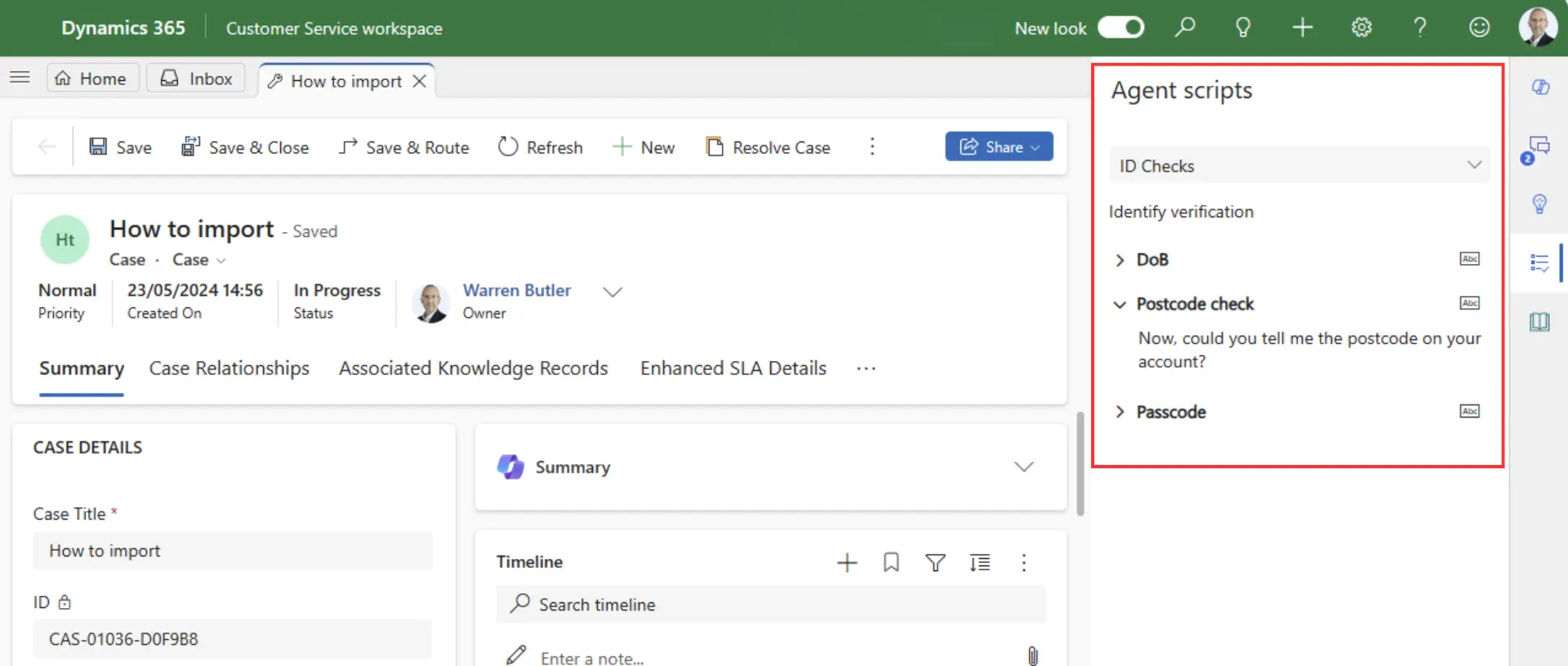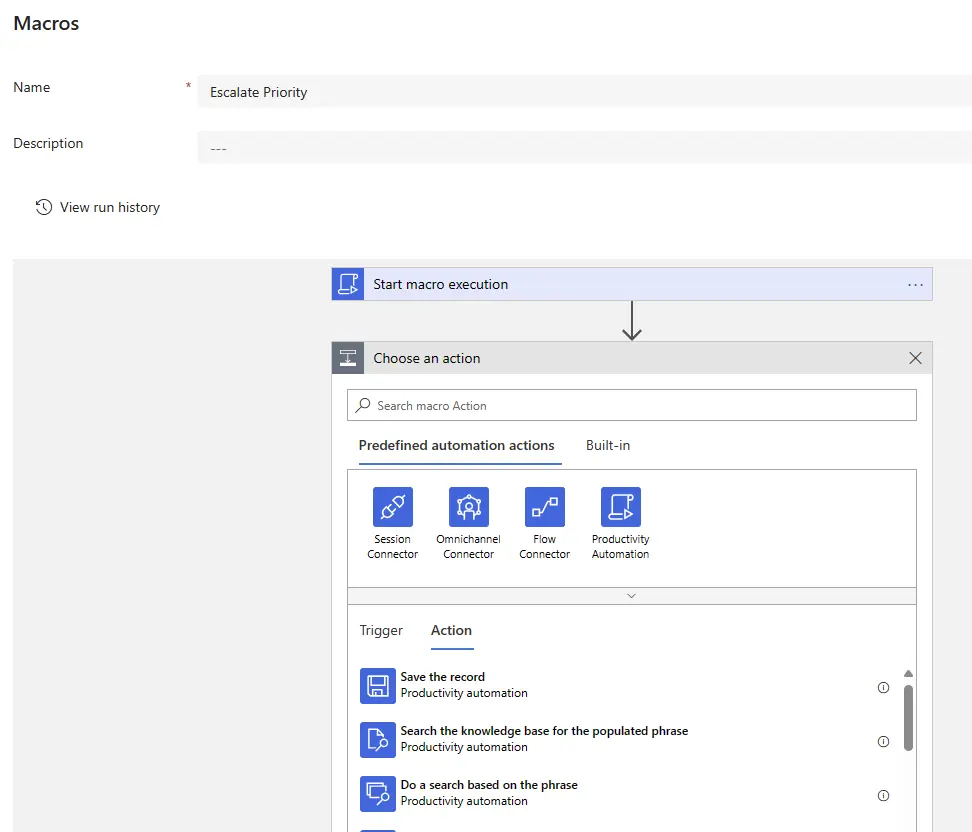Imagine reaching out for service and being greeted every time with the understanding and response of a professional that feels tailor-made to your query.
Unfortunately, the reality often falls short. Customers frequently face long waits, inconsistent information, and a sense that service reps are as lost as they are.
This is where Dynamics 365 agent scripts shine. These are written scripts that shape conversations by equipping teams with a structured dialogue framework. They help navigate common service challenges, such as inconsistent messaging across customer interactions. This uniformity in approach reinforces an organisation’s brand and ethos to help make interactions reliably informative and helpful.
Agent scripts are help onboard new agents. They offer a hands-on reference to speed up the learning process, enabling new personnel to deliver competent service from their first day on the job.
Minimising Service Errors
Scripts are designed to guide teams through customer interactions across channels, providing step-by-step prompts for frequently encountered scenarios.
This pre-structured approach reduces the likelihood of oversights or mistakes that can easily occur in on-the-spot responses. By consistently following your defined steps, service reps are better prepared to navigate inbound enquiries and share information that aligns with your policies.
These scripts help standardise responses to frequent scenarios at scale, ensuring information is always accurate and up-to-date. This includes quickly modifying scripts as your policies change and products evolve.
Adherence to Business Processes
Scripts also play a vital role in ensuring compliance and operational standards by promoting adherence to your process rules.
One example includes using macros – automated actions that integrate into service protocols, automating routine tasks and decisions. For instance, prompting an agent to run a macro within a script can trigger automated actions such as creating a case or updating field values.
These types of automations ensure that interactions are managed according to your organisation’s rules and regulatory requirements.
Also, embedding these procedures directly into the agents’ workflow contributes to a more disciplined and efficient environment.
When people use scripts to comply with your business practices they also simplify workflows, bringing us to another advantage: operational efficiency.
Enhancing Efficiency through Reduced Handling Time
Dynamics 365 agent scripts improve service operations by reducing average handling times. Because scripts equip agents with quick access to pre-approved messages and procedural steps, they enable quicker resolution without compromising service quality. By swiftly guiding individuals through the most efficient paths, scripts minimise pauses, hold times, or the need for assistance from supervisors or co-workers.
Shorter interaction times enable agents to handle more cases, increasing efficiency in service departments and improving satisfaction with faster responses.
What are the main components of Agent Scripts?
The Agent Script Menu provides a list of available scripts. Selecting an option presents the most relevant scripts to adapt to the current interaction.
Text Instructions provide service reps with clear, concise instructions, guiding them through conversations. These can include a range of guidance, from how to greet customers to complex problem-solving steps to ensure consistency.
Macros are integral to the automation of agent scripts. They include automated actions to perform routine tasks, such as updating records or sending templated emails, directly within a script flow. As previously mentioned, this feature embeds standardised procedures into the agents’ workflow, reinforcing adherence to business processes without needing manual intervention.
Links to Agent Scripts allow agents to switch between scripts seamlessly during the course of an interaction. Selecting the view icon loads and replaces the current script in the Agent Script Menu, enabling fluid navigation through conversations.
Agent Scripts: Frequently Asked Questions
How is Agent Scripts Licensed?
The agent scripts feature is available through the Dynamics 365 Customer Service Enterprise license. This capability is not available with the Customer Service Professional user licence
What Dynamics apps are Agent Scripts designed for?
Initially designed for Omnichannel for Customer Service, agent scripts are available in the Dynamics 365 Customer Service Workspace. This feature is not available in the Customer Service Hub.
What channels are supported?
Agent scripts enable omnichannel support, allowing organisations to connect and engage with customers across various messaging platforms, including voice and online chat.
How do Agent Scripts compare to Business Process Flows?
Agent scripts and process flows in Dynamics 365 aim to guide user actions and ensure consistency, but they serve slightly different purposes and operate in distinct ways.
Agent scripts are specifically designed for service. They provide dynamic, real-time guidance for agents, akin to sales sequences for sellers. They allow flexible navigation between scripts during interactions, helping users adapt nimbly.
In contrast, business process flows can work across various applications. Process flows provide a broader guide to reaching a predefined outcome by leading users through steps. These can cover any repeatable process, such as lead qualification, application handling or onboarding new customers.
Agent Scripts excel in service environments requiring instant adaptability and contextual decision-making, enhancing customer service agent’s efficiency.
What are the differences between Knowledge Articles and Agent Scripts?
Dynamics 365 knowledge articles are documents designed to help customers and agents by providing thorough information and solutions for various issues. These articles can be accessed via self-service portals or used by agents to assist customers.
Conversely, agent scripts are pre-defined, step-by-step guides that help agents navigate through customer interactions, ensuring consistency and adherence to company standards. While knowledge articles offer in-depth content on topics, agent scripts focus on the process and flow of customer communication.
Take the Next Step
Dynamics 365 agent scripts will enhance your team’s interaction management, ensure accuracy, and provide consistent experiences. This results in better customer support and smoother operations.
Interested in learning more? Contact ServerSys to explore how this feature can benefit your business.



